What are we actually doing out here? Sometimes I get this question on an expedition as we’re shuffling in a seemingly endless slog up a steep mountainside. Sometimes it comes with a breath of realization and awe after a day of solitude and reflection by the shoreline. As an Outward Bound Instructor, I’ve been asked a lot of things. Below are seven recent questions I’ve gotten that made me wonder, what are we really doing when we’re out in the wilderness?
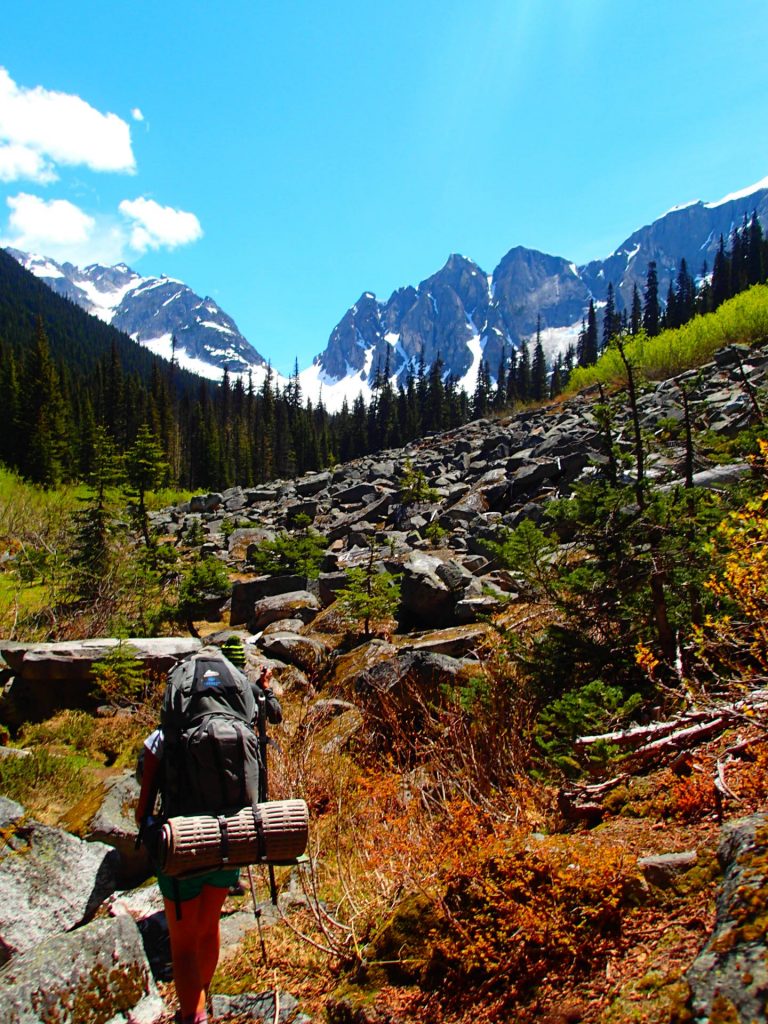
Photo by Jaclyn Long
1. I don’t think I can do it. Can I?
Yes, you can! Maybe not at first. Maybe you’ll start on a rock climb that seems more accessible, maybe we’ll begin with a shorter hiking day. Maybe you start by learning one knot before perfecting the next. Maybe you can’t do it…yet.
We use progressive, experiential approaches to learning. Students become adept at doing things when they have real experience of both success and failure. ‘Experiential’ means that we don’t just talk about things in theory, but we do things that challenge us. And slowly, we can rise to bigger challenges.
At the start of a course, the hardest things to adjust to might be pooping in an outhouse or sleeping on a foam pad. As we settle into the rhythms of the expedition, those challenges will become old hat. These will likely be replaced by the challenge of following a bearing with a compass or navigating whitewater rapids—which at the start of the expedition, you couldn’t do…yet.
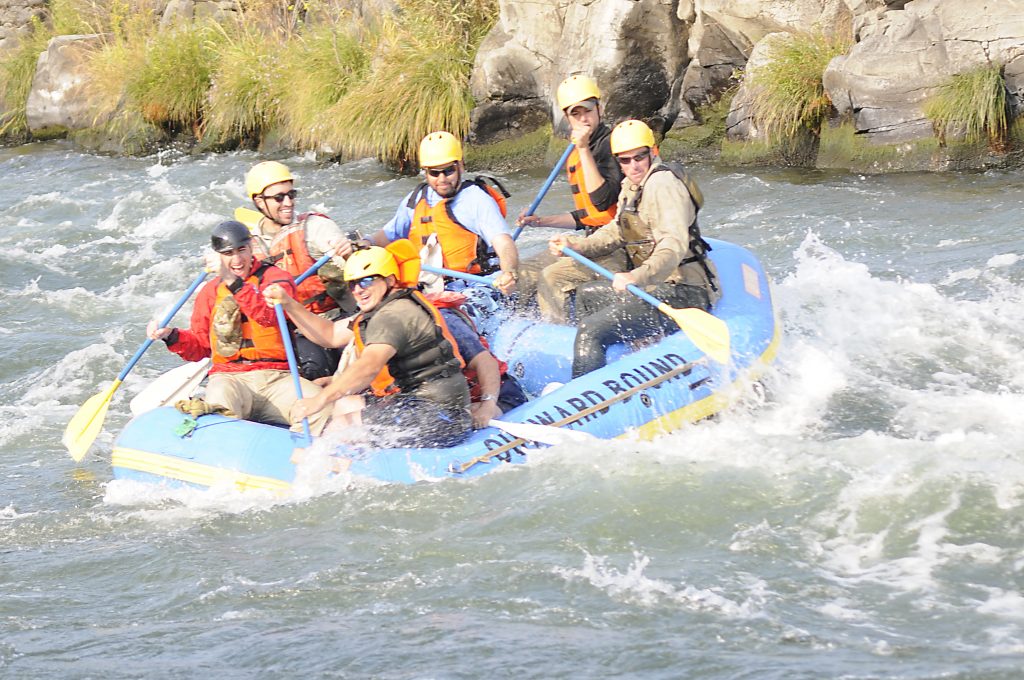
Veterans whitewater rafting on the Deschutes River in Oregon from September 6-12, 2015.
2. What will I do without my phone?
I assure you, you’ll be quite alright. At the end of their expeditions, many of my students this summer were reluctant to get their phones back. While our phones allow us to connect with people far away, they often disconnect us from what’s in front of us. It’s really common for students to feel anxiety around social media and phone use in their daily lives, which is alleviated on an expedition.
You’ll be needed to fetch water. Or make a meal over the cook stove. Or set up shelters for the night. The point is, you’re so engrossed with the demands of the present moment, there won’t be time to dwell on your phone.
Without a phone, the relationships people build over the course of a week are often stronger than many of the friendships my students have at home. When you’re canoeing with a paddling partner who is from the other side of the country, and has very different perspectives from you, you’ll get to a point in the conversation when you don’t know what to say. Instead of turning away, you’ll have to push through. You’ll have to hear each other out. Outdoor education is about coming face-to-face with the real world, and not being able to turn away.
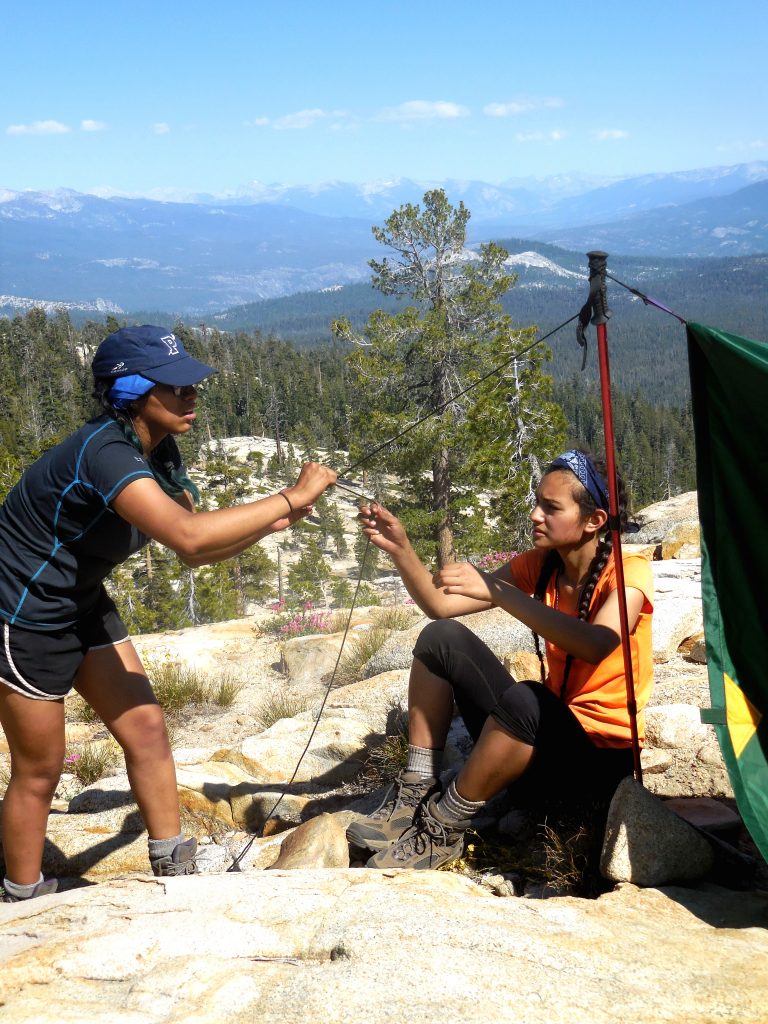
3. Will it ever stop raining?
Maybe, maybe not. One thing I’ve learned as an Instructor is that humans have an amazing capacity to think that their present condition will go on forever. It honestly might rain for the entire expedition, but that doesn’t need to determine whether or not we learn and grow. I care about who you are, not just when you are comfortable and well-fed. I care about who you are when you are cold, wet and hungry, and we still need to set up the tarp. I want to know if you can sensibly deny yourself some desires in order to serve others in need. I want to know if you can make jokes and be kind and persevere even though it’s raining.
We learn not just from the wilderness, but through the wilderness. It’s often said that every Outward Bound course is given just the conditions they need for what they’re learning.
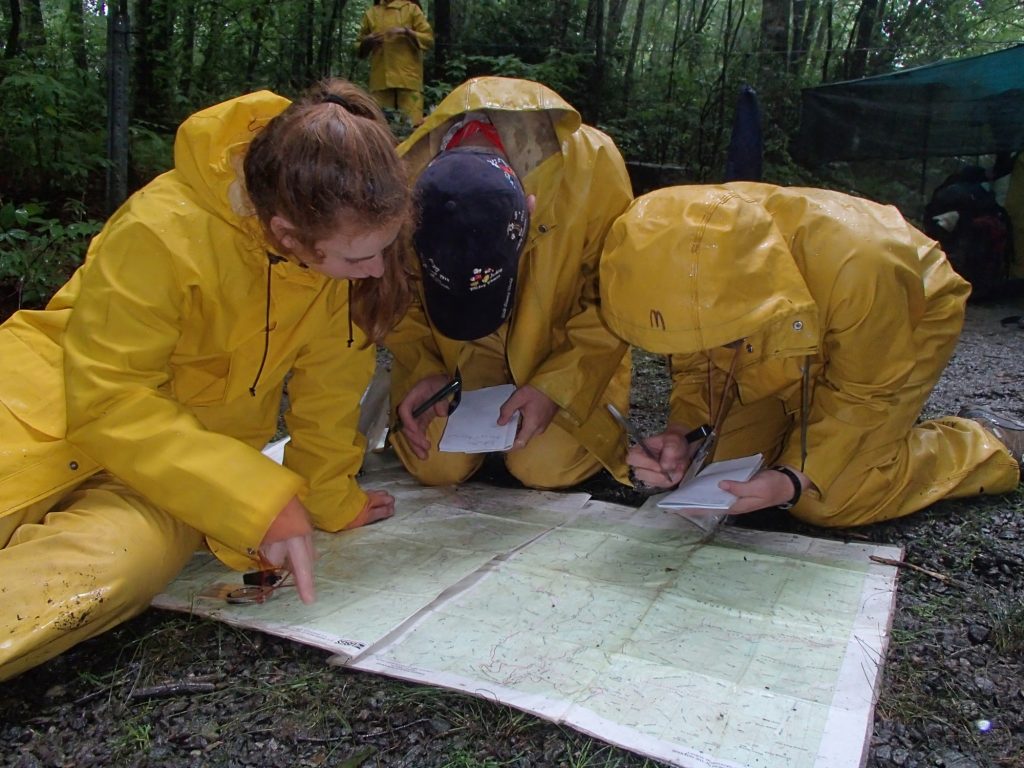
4. Why can’t the Instructors just do it for us?
Because you can do it! The role of the instructor is to allow for students to face experiences from which they can learn, and through experience master the skills at hand. Instructors give all of the tools and learning necessary for students to eventually do it on their own.
Also, there are a lot of different jobs that are necessary in a well-functioning expedition team and no one, not even the Instructors, can do it alone. We’ll need cooks and navigators, motivators and medics, camp setter uppers and water fillers.
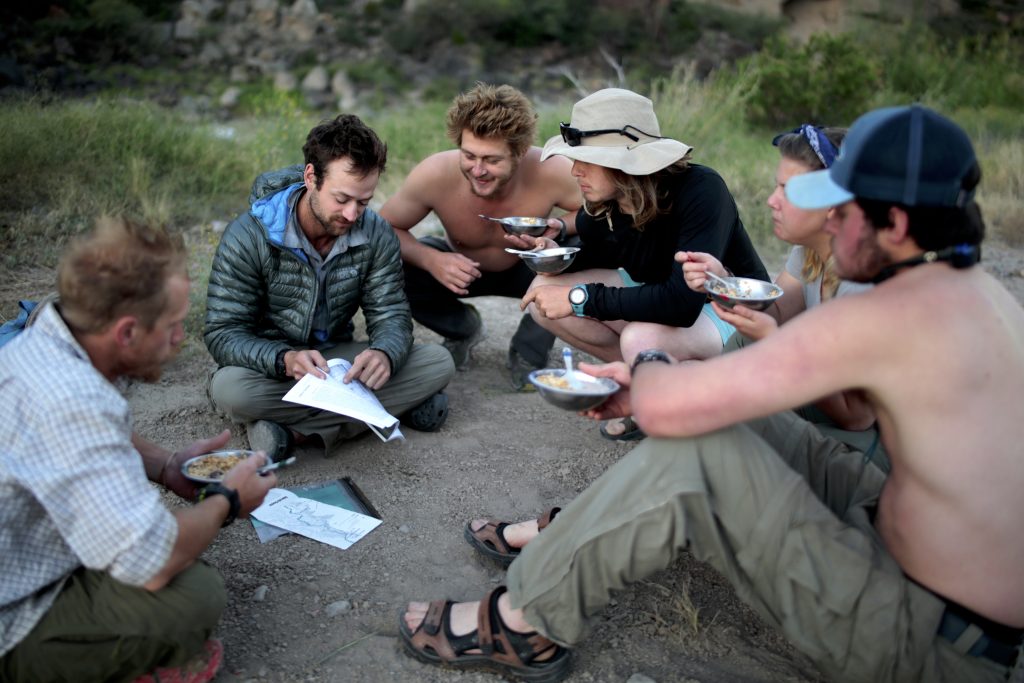
5. Do I really have to lick my bowl?
Before we pack our food bags, learn to cook over a fire or bake our first loaf of bread, this question comes up. It’s weird at first, I know! Any food scraps we don’t eat go in the compost bag, which we’ll have to carry for the next week. Any food scraps we put in the wilderness could harm the local wildlife or draw bears to the area.
Most of us live in a way that allows us to not see all the effects of our actions. If we don’t compost, we can shovel food scraps into the trash and not think about the environment where they will decay. Outdoor education puts us right smack against the natural world and the consequences of our actions. We’re traveling in a small group that allows us to see how we have an impact on other people. We’re relying on our natural environment and can understand how it sustains us, and how we affect it in return.
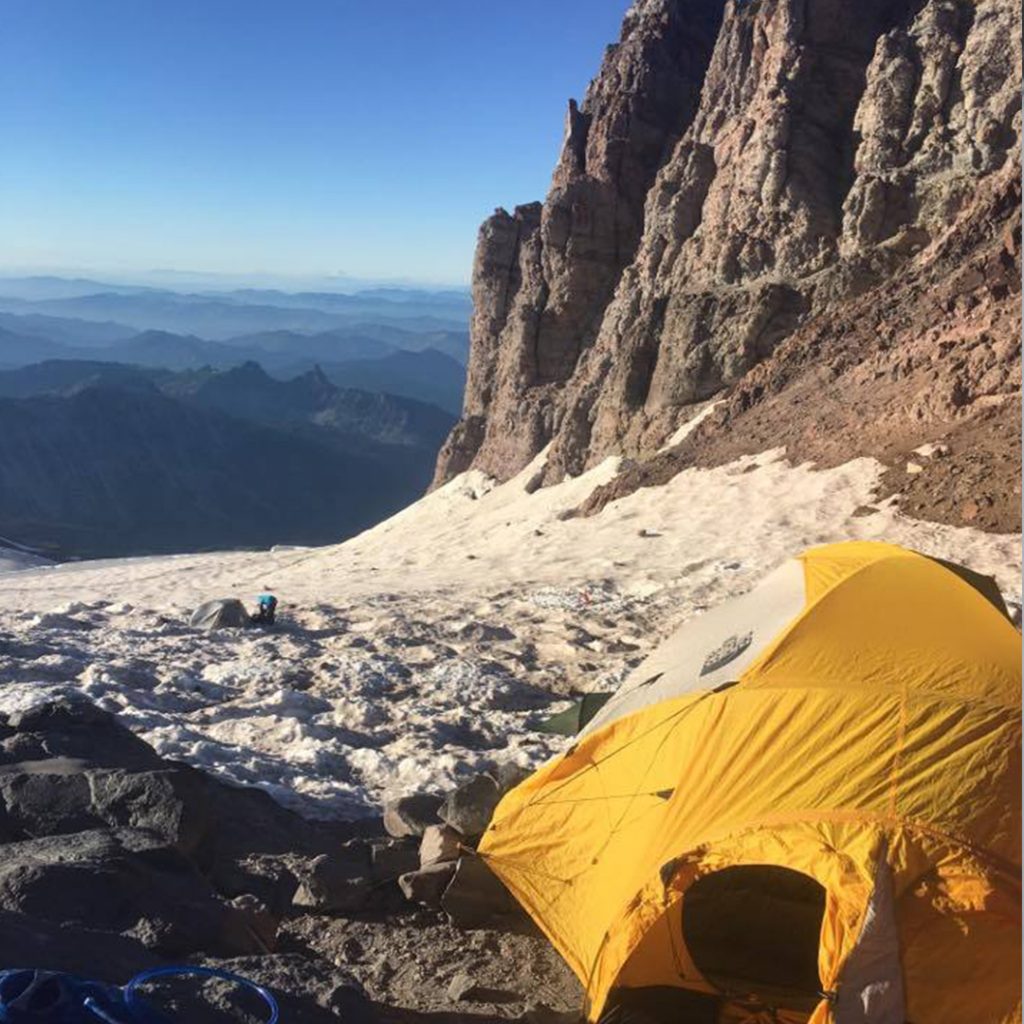
6. What will we see?
The natural world around us will be startling, engrossing and awe-inspiring in ways we never expected. Maybe this will take place during an overnight Solo, listening to the quiet sounds of the forest falling asleep. Maybe it will be through journaling, or drawing, or a glorious moment of spotting that bald eagle that doesn’t yet see you. Outdoor education is place-based, and allows us to pay attention to the world around us, and to come back into connection with the natural world.
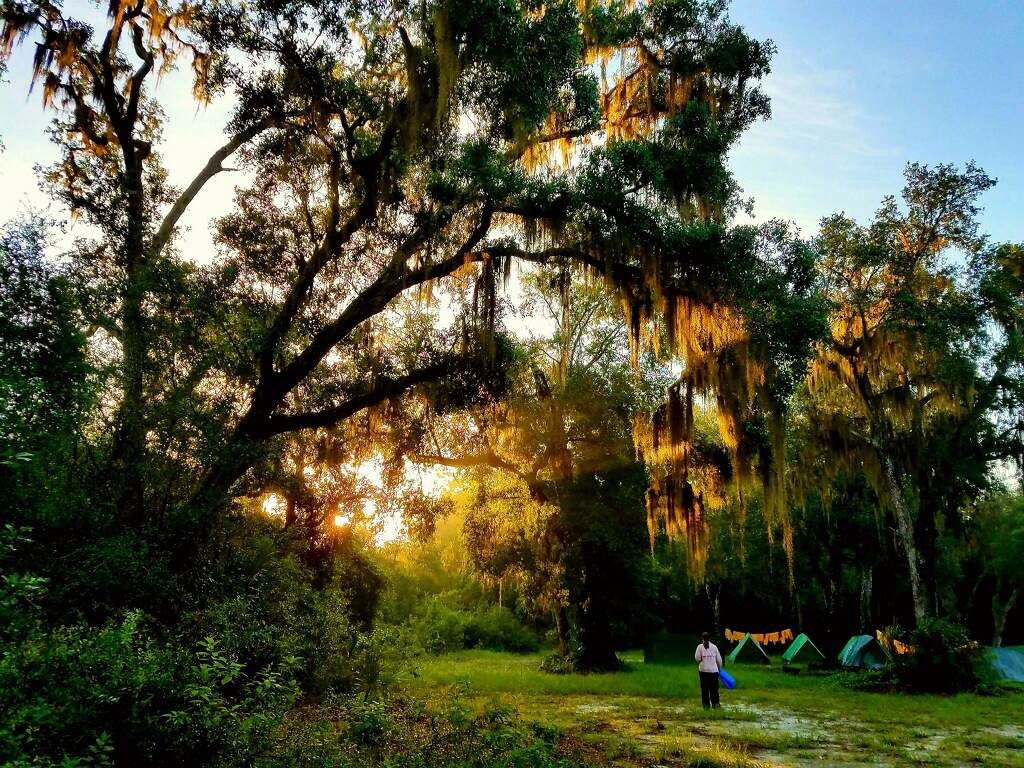
7. What happens next?
The true journey is returning to the wider world.
Outdoor education allows us to see the way our behavior affects other people in real time, both the joys and difficulties. We have a confined group, confined amount of food, confined means of transportation. We work closely together. Crews will often set a few foundational agreements for how they treat each other. What they’re really doing is creating the world they want to live in. Maybe that includes treating each other with unconditional positive regard, or trying something before saying I ‘can’t,’ or dancing with joy when they see something beautiful. We have a chance, for nine days or 22, of living in the world that we want to create, of making it real.
And you’ve already had a glimpse that it’s possible. You suddenly know that you can do more than you think you can. And you know how much you’re needed. To me, that’s what outdoor education is all about.
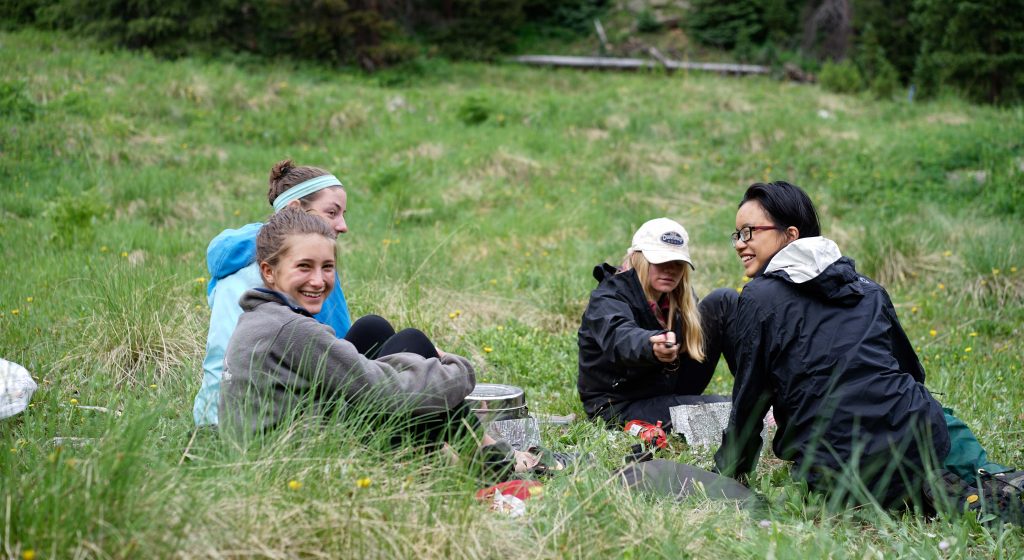
About the Author
Nora Spicer has instructed backpacking and canoeing courses at the Hurricane Island Outward Bound School for five years. She has an MA in Environmental History from Harvard University and aims to bridge wilderness living and academic study through outdoor education. She is currently developing curriculum for an expedition-based semester program traversing US-Mexico borders by human-powered travel, and is traveling for research on Borderlands education.




